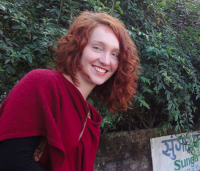- Forum
- categories
- Sanitation systems
- Faecal sludge management (FSM)
- Faecal sludge treatment technologies
- Lessons learnt from implementing decentralised FSM in Dar es Salaam, Tanzania
Lessons learnt from implementing decentralised FSM in Dar es Salaam, Tanzania
4828 views
- paresh
-

- Moderator
- Budding WASH researcher, especially interested in governance, public policy, finance, politics and social justice. Architect, Urban & Regional planner by training, Ex. C-WAS, India.I am a patient person :)
Less- Posts: 383
- Karma: 7
- Likes received: 143
Re: Lessons learnt from implementing decentralised FSM in Dar es Salaam, Tanzania
Dear Laura,
Thankyou for posting this interesting development. It is an excellent example of contextualising solutions for unplanned urban areas. Also appreciate that local leadership does most of the talking in the video.
I am curious to know what studies preceded the construction of FSTPs and what planning tools were used in the process. Also interested to know if the community/households in the vicinity of the FSTPs objected to locating them near their properties and if yes, how was it dealt with?
Regards
paresh
Thankyou for posting this interesting development. It is an excellent example of contextualising solutions for unplanned urban areas. Also appreciate that local leadership does most of the talking in the video.
I am curious to know what studies preceded the construction of FSTPs and what planning tools were used in the process. Also interested to know if the community/households in the vicinity of the FSTPs objected to locating them near their properties and if yes, how was it dealt with?
Regards
paresh
Paresh Chhajed-Picha
Moderator, SuSanA forum
Project Manager at ADCPS
Indian Institute of Technology - Bombay, India
Moderator, SuSanA forum
Project Manager at ADCPS
Indian Institute of Technology - Bombay, India
Please Log in to join the conversation.
You need to login to reply- laurabrightdavies
-
 Topic Author
Topic Author- I am an urban development and sanitation expert, specialised in the urban environmental challenges & opportunities found in low- and middle-income countries
Less- Posts: 15
- Karma: 2
- Likes received: 12
Lessons learnt from implementing decentralised FSM in Dar es Salaam, Tanzania
BORDA Tanzania has produced a documentary, highlighting the key findings of an FSM project which was implemented in Dar es Salaam (Tanzania) between June 2016 - May 2020.
Check it out here :
Additional information about this documentary:
BORDA Tanzania and Ifakara Health Institute (IHI) implemented this four-year project (entitled “DEWATS for Dar”) to improve access to sanitation services in Dar es Salaam; particularly in the low-income, unplanned areas, which aren't connected to the sewerage network and cannot be reached by large conventional sludge trucks. Within this project, two decentralised faecal sludge treatment plants (FSTPs) were constructed, and a team of professional service providers was established, to empty pits and transport sludge to nearby treatment facilities. These trained operators now provide safe, affordable and improved methods of pit-emptying, using innovating equipment and small-scale vehicles, which can provide services even in the most inaccessible and highly congested urban areas.
This project was funded by UKAID through the Human Development Innovation Fund (HDIF), and the German Federal Ministry for Economic Cooperation and Development (BMZ).
To learn more about the Human Development Innovation Fund (HDIF), Ifakara Health Institute (IHI) and BORDA in Tanzania:
Twitter: @BORDA_Bremen; @HDIFtz; @ifakarahealth
Facebook: @HDIFTanzania; @likeIHI
LinkedIn: HDIFTanzania; ifakara-health-institute
Instagram: #InnovationTZ
Web: borda-africa.or.tz; hdif-tz.org; ihi.or.tz
Check it out here :
Additional information about this documentary:
BORDA Tanzania and Ifakara Health Institute (IHI) implemented this four-year project (entitled “DEWATS for Dar”) to improve access to sanitation services in Dar es Salaam; particularly in the low-income, unplanned areas, which aren't connected to the sewerage network and cannot be reached by large conventional sludge trucks. Within this project, two decentralised faecal sludge treatment plants (FSTPs) were constructed, and a team of professional service providers was established, to empty pits and transport sludge to nearby treatment facilities. These trained operators now provide safe, affordable and improved methods of pit-emptying, using innovating equipment and small-scale vehicles, which can provide services even in the most inaccessible and highly congested urban areas.
This project was funded by UKAID through the Human Development Innovation Fund (HDIF), and the German Federal Ministry for Economic Cooperation and Development (BMZ).
To learn more about the Human Development Innovation Fund (HDIF), Ifakara Health Institute (IHI) and BORDA in Tanzania:
Twitter: @BORDA_Bremen; @HDIFtz; @ifakarahealth
Facebook: @HDIFTanzania; @likeIHI
LinkedIn: HDIFTanzania; ifakara-health-institute
Instagram: #InnovationTZ
Web: borda-africa.or.tz; hdif-tz.org; ihi.or.tz
The following user(s) like this post: Chaiwe, Cissoko
Please Log in to join the conversation.
You need to login to reply
Share this thread:
- Forum
- categories
- Sanitation systems
- Faecal sludge management (FSM)
- Faecal sludge treatment technologies
- Lessons learnt from implementing decentralised FSM in Dar es Salaam, Tanzania
Recently active users. Who else has been active?
Time to create page: 0.072 seconds







